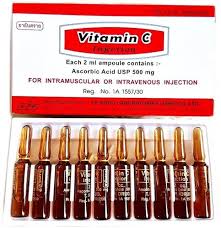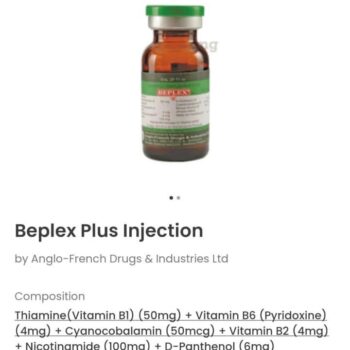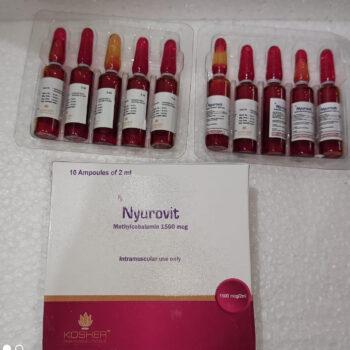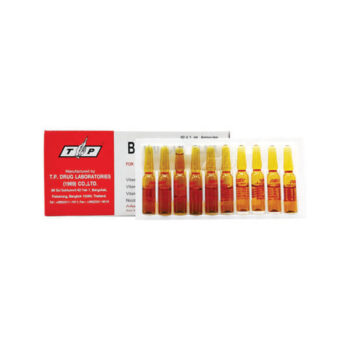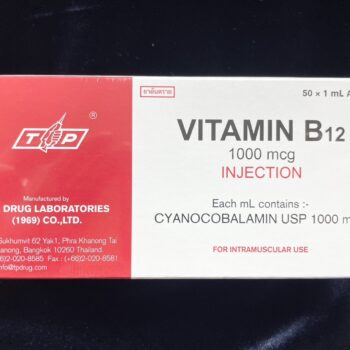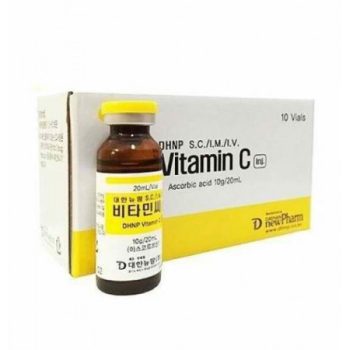** Customers to Japan **
If the shipment is found at customs as an injection, you will be required to show proof of drug supervision from 2020.
If you cannot prepare the proof of drug supervision, please follow the procedure to return it to the sender.
We will notify you when the item arrives at our company, so we will re-ship it after paying the shipping fee again.
Vitamin C 500mg 2 ml Ampoule x 10
Vitamin C Injection: Benefits and Risks
Benefits
Dose
Side effects
Risks
Vitamin C is an essential nutrient in our diet. It has many important roles our body’s immune function, including:
wound healing
preventing damage to cells
building collagen
producing chemical messengers called neurotransmitters
Vitamin C can be found in many healthy foods, especially:
citrus fruits and juice
red and green peppers
broccoli
strawberries
Brussels sprouts
You can also get vitamin C from dietary supplements. Vitamin C supplements are available in many forms:
oral tablets
chewable tablets
extended-release tablets
extended-release capsules
Vitamin C is also available by prescription as an injection. The injectable vitamin C can be given into a vein (intravenously), into a muscle (intramuscularly), or under the skin (subcutaneously).
Purpose of vitamin C injections
Many people take vitamin C for general health or to boost their immune system. It’s also taken to treat vitamin C deficiency.
Vitamin C deficiency can lead to scurvy. Characteristic symptoms of vitamin C deficiency include:
swollen and bleeding gums
fatigue
poor wound healing
joint pain
loose teeth
colored spots on the skin
In some cases, signs of scurvy can occur within a month of consuming less than 10 milligrams (mg) per day of vitamin C.
Today, scurvy is rare in developed countries. It’s most likely to occur in people who:
smoke
consume a limited variety of food
have nutrient absorption problems
Vitamin C injections are approved by the U.S. Food and Drug Administration (FDA) for treating vitamin C deficiency. They’re also approved for helping to treat serious wounds from trauma or burns.
However, vitamin C injections are typically only used when vitamin C levels need to be increased quickly or when oral supplements can’t be taken due to poor absorption or other reasons.
Off-label use
Vitamin C injections are sometimes used off-label for other conditions, including:
cancer
general health
immune function
weight loss
Off-label drug use means that a drug that’s been approved by the FDA for one purpose is used for a different purpose that has not been approved. However, a doctor can still use the drug for that purpose. This is because the FDA regulates the testing and approval of drugs, but not how doctors use drugs to treat their patients. So your doctor can prescribe a drug however they think is best for your care. Learn more about off-label prescription drug use.
Cancer
As early as the 1970s, some researchers were suggesting that using high doses of intravenous vitamin C along with cancer drugs could improve treatment of cancer. Intravenous vitamin C can produce very high levels of vitamin C in the body. Researchers believe that these high vitamin C levels can be toxic to cancer cells without harming the healthy cells of the body.
Some researchers also believe that vitamin C might be able to reduce the side effects of cancer drugs.
However, the potential benefits of intravenous vitamin C in cancer treatment remains controversial. In a systematic reviewTrusted Source, researchers found inadequate evidence to determine if intravenous vitamin C was beneficial for cancer treatment.
General health and immune function
Some people receive vitamin C injections for general health or to boost immune function and for convenience. The injection means they don’t have to remember to take a supplement pill each day.
It’s true that vitamin C has an important function in the body, but it’s controversial whether taking additional vitamin C — orally or by injection — offers any advantage for people who consume adequate vitamin C in their diet.
The research is inconclusive regarding whether vitamin C reduces the chance of developing cancer, prevents heart disease, prevents eye disease such as macular degeneration, or prevents the common cold.
Weight loss
Vitamin C injection is sometimes used for weight loss. Some researchTrusted Source suggests that people who don’t have adequate vitamin C intake aren’t able to burn fat very well.
This means that it’s important to ensure adequate intake of vitamin C. However, there is no scientific research showing that taking vitamin C supplements orally or vitamin C injections causes weight loss.
General dosing
For treating vitamin C deficiency, the typical vitamin C injection dose is 500 mg once daily for up to a week.
For wound healing, the typical vitamin C injection dose is 1 gram once daily for 5 to 21 days.
For off-label uses, a wide variety of vitamin C injection doses have been used. These typically range from 10 to 100 grams. Doses may be given daily or periodically at different intervals.

